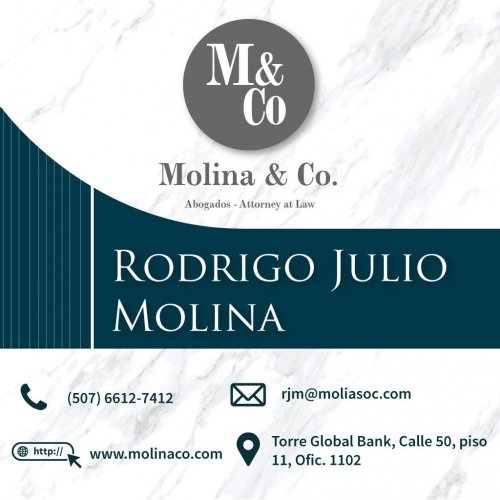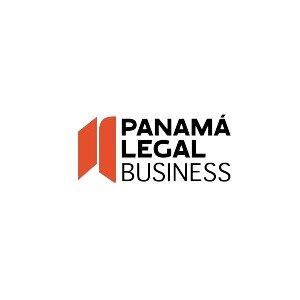What steps are needed to convert a community group into a formal nonprofit in Panama?
Lawyer Answers

Molina & Co
ransform your community group into an official nonprofit organization in Panama, there are several steps and requirements you'll need to follow. Here's a general overview of the process, along with the documents, registrations, and ongoing obligations:
1. Drafting the Bylaws (Estatutos)
What it is: The bylaws are the governing rules for the organization. They should include the organization's name, purpose, structure, membership rules, governance, and procedures for meetings, among other details.
Required details:
Name of the nonprofit
Purpose and mission of the organization
Organizational structure (Board of Directors, roles, etc.)
Membership requirements (if any)
Rules for decision-making and voting
Dissolution clause (how assets are distributed in case of dissolution)
2. Forming the Board of Directors
What it is: You need to establish a Board of Directors, which will oversee the nonprofit. The board typically consists of at least three members.
Requirements: The members must be individuals of legal age (18 years or older) and should not be directly related in terms of family ties to maintain good governance practices.
3. Registering the Organization
Where to Register:
Public Registry (Registro Público): The nonprofit must be registered with the Public Registry of Panama to be legally recognized.
Tax Identification Number (RUC): You need to apply for a tax identification number through the Directorate General of Revenue (Dirección General de Ingresos - DGI).
Documents required for registration
The notarized bylaws (Estatutos)
Minutes of the meeting where the organization was created
Board of Directors’ information (names and identification)
Proof of legal address (could be a lease or utility bill)
RUC registration (tax identification)
4. Obtaining Nonprofit Status
Tax Exemptions: Nonprofits in Panama are generally eligible for tax exemptions, but you must request this status from the DGI. It's essential to demonstrate that the organization's activities align with public benefit purposes, such as education, health, culture, or charity.
What’s required: A description of your activities, a statement confirming no profits will be distributed to members, and a declaration of your commitment to public good.
5. Ongoing Obligations
Annual Reports: Nonprofits are required to submit annual financial reports, which typically include:
Balance sheets
Profit and loss statements
Auditing: Larger nonprofits may be required to have their financial statements audited by an independent auditor, but smaller organizations may not have this obligation unless specifically required by the Ministry of Commerce and Industry or the DGI.
Annual General Assembly: Nonprofits must hold an Annual General Assembly (AGA) to elect new board members and approve financial statements.
Tax Returns: Even though nonprofits are tax-exempt, they still must file annual tax returns with the DGI.
6. Cost and Timeline
Cost: The fees involved in setting up a nonprofit will include notary fees, registration costs, and possibly legal or accounting fees. The total cost may range from $500 to $2,000 USD, depending on the complexity of your organization and the professional services hired. Plus Expenses
Timeline: The process of registering the nonprofit typically takes 2-3 months, assuming there are no significant issues with the paperwork.
7. Hiring a Lawyer
It's highly recommended to consult with a lawyer who specializes in nonprofit law in Panama to ensure that all legal requirements are met. They can assist in drafting your bylaws, guiding you through the registration process, and ensuring compliance with all local regulations. Legal fees can vary based on the complexity of the organization, but a lawyer's assistance will help expedite the process and prevent any legal missteps.
By following these steps, you can formally register your community group as a nonprofit organization in Panama, allowing you to operate legally and with access to certain benefits, such as tax exemptions and eligibility for grants
Regards
Rodrigo Julio Molina O

Molina & Co
1. Drafting the Bylaws (Estatutos)
What it is: The bylaws are the governing rules for the organization. They should include the organization's name, purpose, structure, membership rules, governance, and procedures for meetings, among other details.
Required details:
Name of the nonprofit
Purpose and mission of the organization
Organizational structure (Board of Directors, roles, etc.)
Membership requirements (if any)
Rules for decision-making and voting
Dissolution clause (how assets are distributed in case of dissolution)
2. Forming the Board of Directors
What it is: You need to establish a Board of Directors, which will oversee the nonprofit. The board typically consists of at least three members.
Requirements: The members must be individuals of legal age (18 years or older) and should not be directly related in terms of family ties to maintain good governance practices.
3. Registering the Organization
Where to Register:
Public Registry (Registro Público): The nonprofit must be registered with the Public Registry of Panama to be legally recognized.
Tax Identification Number (RUC): You need to apply for a tax identification number through the Directorate General of Revenue (Dirección General de Ingresos - DGI).
Documents required for registration:
The notarized bylaws (Estatutos)
Minutes of the meeting where the organization was created
Board of Directors’ information (names and identification)
Proof of legal address (could be a lease or utility bill)
RUC registration (tax identification)
4. Obtaining Nonprofit Status
Tax Exemptions: Nonprofits in Panama are generally eligible for tax exemptions, but you must request this status from the DGI. It's essential to demonstrate that the organization's activities align with public benefit purposes, such as education, health, culture, or charity.
What’s required: A description of your activities, a statement confirming no profits will be distributed to members, and a declaration of your commitment to public good.
5. Ongoing Obligations
Annual Reports: Nonprofits are required to submit annual financial reports, which typically include:
Balance sheets
Profit and loss statements
Auditing: Larger nonprofits may be required to have their financial statements audited by an independent auditor, but smaller organizations may not have this obligation unless specifically required by the Ministry of Commerce and Industry or the DGI.
Annual General Assembly: Nonprofits must hold an Annual General Assembly (AGA) to elect new board members and approve financial statements.
Tax Returns: Even though nonprofits are tax-exempt, they still must file annual tax returns with the DGI.
6. Cost and Timeline
Cost: The fees involved in setting up a nonprofit will include notary fees, registration costs, and possibly legal or accounting fees. The total cost may range from $500 to $2,000 USD, depending on the complexity of your organization and the professional services hired. Plus Expenses
Timeline: The process of registering the nonprofit typically takes 2-3 months, assuming there are no significant issues with the paperwork.
7. Hiring a Lawyer
It's highly recommended to consult with a lawyer who specializes in nonprofit law in Panama to ensure that all legal requirements are met. They can assist in drafting your bylaws, guiding you through the registration process, and ensuring compliance with all local regulations. Legal fees can vary based on the complexity of the organization, but a lawyer's assistance will help expedite the process and prevent any legal missteps.
By following these steps, you can formally register your community group as a nonprofit organization in Panama, allowing you to operate legally and with access to certain benefits, such as tax exemptions and eligibility for grants

Molina & Co
ransform your community group into an official nonprofit organization in Panama, there are several steps and requirements you'll need to follow. Here's a general overview of the process, along with the documents, registrations, and ongoing obligations:
1. Drafting the Bylaws (Estatutos)
What it is: The bylaws are the governing rules for the organization. They should include the organization's name, purpose, structure, membership rules, governance, and procedures for meetings, among other details.
Required details:
Name of the nonprofit
Purpose and mission of the organization
Organizational structure (Board of Directors, roles, etc.)
Membership requirements (if any)
Rules for decision-making and voting
Dissolution clause (how assets are distributed in case of dissolution)
2. Forming the Board of Directors
What it is: You need to establish a Board of Directors, which will oversee the nonprofit. The board typically consists of at least three members.
Requirements: The members must be individuals of legal age (18 years or older) and should not be directly related in terms of family ties to maintain good governance practices.
3. Registering the Organization
Where to Register:
Public Registry (Registro Público): The nonprofit must be registered with the Public Registry of Panama to be legally recognized.
Tax Identification Number (RUC): You need to apply for a tax identification number through the Directorate General of Revenue (Dirección General de Ingresos - DGI).
Documents required for registration:
The notarized bylaws (Estatutos)
Minutes of the meeting where the organization was created
Board of Directors’ information (names and identification)
Proof of legal address (could be a lease or utility bill)
RUC registration (tax identification)
4. Obtaining Nonprofit Status
Tax Exemptions: Nonprofits in Panama are generally eligible for tax exemptions, but you must request this status from the DGI. It's essential to demonstrate that the organization's activities align with public benefit purposes, such as education, health, culture, or charity.
What’s required: A description of your activities, a statement confirming no profits will be distributed to members, and a declaration of your commitment to public good.
5. Ongoing Obligations
Annual Reports: Nonprofits are required to submit annual financial reports, which typically include:
Balance sheets
Profit and loss statements
Auditing: Larger nonprofits may be required to have their financial statements audited by an independent auditor, but smaller organizations may not have this obligation unless specifically required by the Ministry of Commerce and Industry or the DGI.
Annual General Assembly: Nonprofits must hold an Annual General Assembly (AGA) to elect new board members and approve financial statements.
Tax Returns: Even though nonprofits are tax-exempt, they still must file annual tax returns with the DGI.
6. Cost and Timeline
Cost: The fees involved in setting up a nonprofit will include notary fees, registration costs, and possibly legal or accounting fees. The total cost may range from $500 to $2,000 USD, depending on the complexity of your organization and the professional services hired. Plus Expenses
Timeline: The process of registering the nonprofit typically takes 2-3 months, assuming there are no significant issues with the paperwork.
7. Hiring a Lawyer
It's highly recommended to consult with a lawyer who specializes in nonprofit law in Panama to ensure that all legal requirements are met. They can assist in drafting your bylaws, guiding you through the registration process, and ensuring compliance with all local regulations. Legal fees can vary based on the complexity of the organization, but a lawyer's assistance will help expedite the process and prevent any legal missteps.
By following these steps, you can formally register your community group as a nonprofit organization in Panama, allowing you to operate legally and with access to certain benefits, such as tax exemptions and eligibility for grants
Regards
Rodrigo Julio Molina O

Studio Panama Italia
In Panama, the practical route for a community group is usually an “Asociación sin Fines de Lucro (OSFL)”. Steps are:
\n\n
- \n
- \n
Prepare the core documents
\nStatutes/bylaws (name, purpose, domicile, membership rules, governance, quorum/voting, board roles, assets/funds use, dissolution), plus an incorporation minutes/act (acta de constitución) approving the statutes and appointing the board. This is normally filed through a Panamanian attorney.
\n \n - \n
Obtain legal personality (personería jurídica)
\nFile the petition (through attorney/power of attorney) with the Ministry of Government (Ministerio de Gobierno) for recognition/registration of the OSFL.
\n \n - \n
Notarization + Public Registry
\nOnce approved, the resolution/statutes are typically taken to a notary and then registered so the entity can operate formally (contracts, bank accounts, etc.).
\n \n - \n
Tax and operational registrations (as needed)
\nIf you will receive donations, hire staff, open accounts, or do any taxable/registrable activity, you usually obtain a RUC/NIT with the tax authority (DGI). If you will receive qualifying donations, there are additional fiscal compliance steps.
\n \n
\n
\n
Ongoing obligations (what people miss)
\n– Keep a minutes book, member register, and accounting records; maintain an actual local address.
\n– File the reports required under the OSFL regulatory framework (including reporting duties under the Decree that regulates OSFL).
\n– If you receive donations under certain conditions, you may need to file donation reports with the DGI.
\n\n
Audits / annual reporting
\n– Annual reporting: yes, you should assume ongoing reporting/updates are required (especially to comply with OSFL rules).
\n– Audits: not automatically for every small OSFL, but you must keep accounting records; audits often become required by donors, by specific programs, or if your scale/operations trigger it.
\n\n
Typical timeline
\nRealistically, plan for a multi-month process. Depending on reviews/observations and the type of OSFL, it can take several months (commonly quoted ranges go up to 4–8 months for full approval).
\n\n
Typical cost (ballpark)
\nGovernment fees are relatively small compared to legal work. Attorney minimum tariff references show around USD 1,000 just for the legal processing of OSFL personería jurídica, but market totals vary depending on complexity, translations, notarizations, and registrations.
\n\n
Studio Panama Italia
Free • Anonymous • Expert Lawyers
Need Personal Legal Help?
Connect with experienced lawyers in your area for personalized advice on your specific situation.
No obligation to hire. 100% free service.
Related Legal Experts
Get personalized help from lawyers specializing in this area

All lawyers are verified, licensed professionals with proven track records



